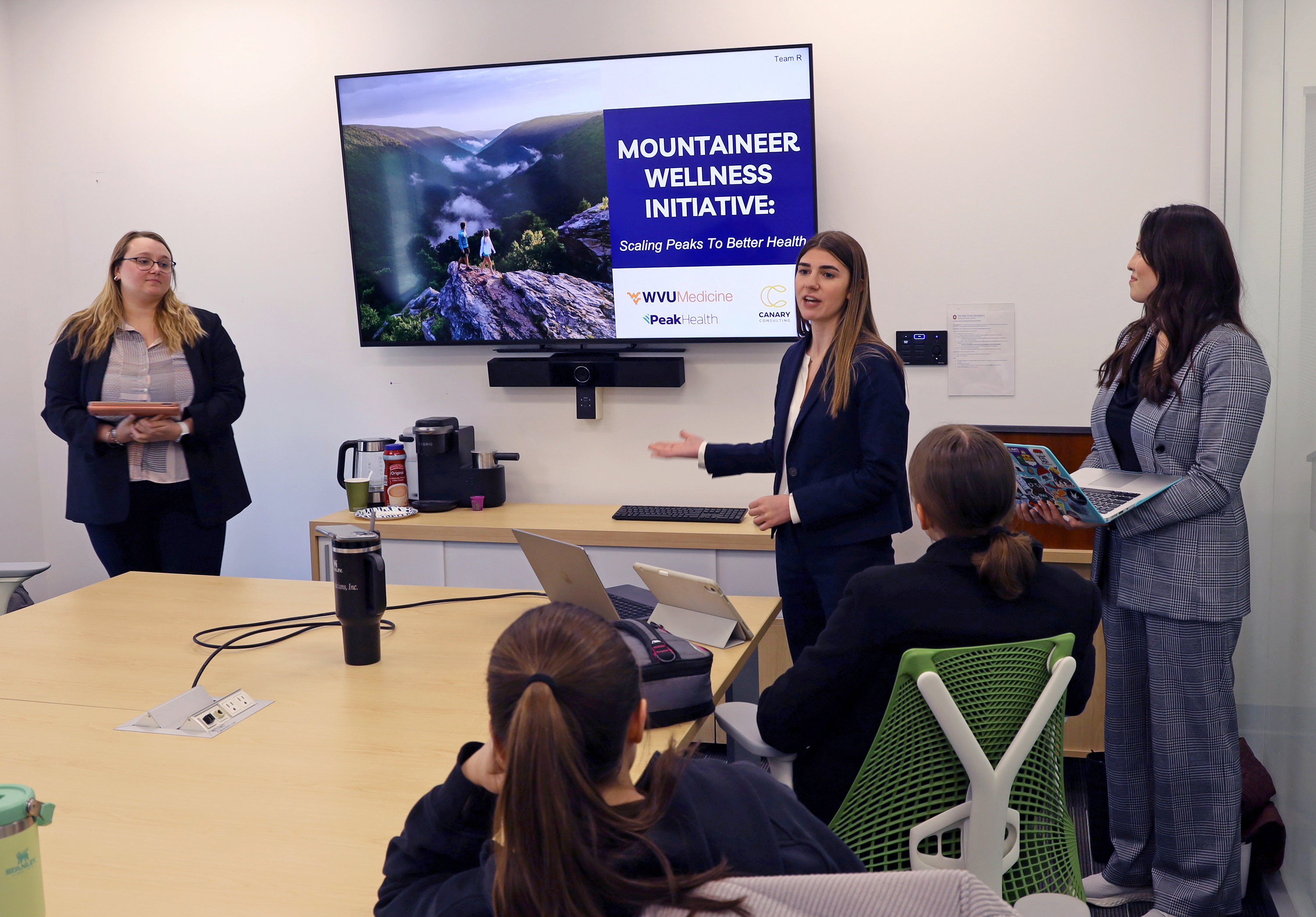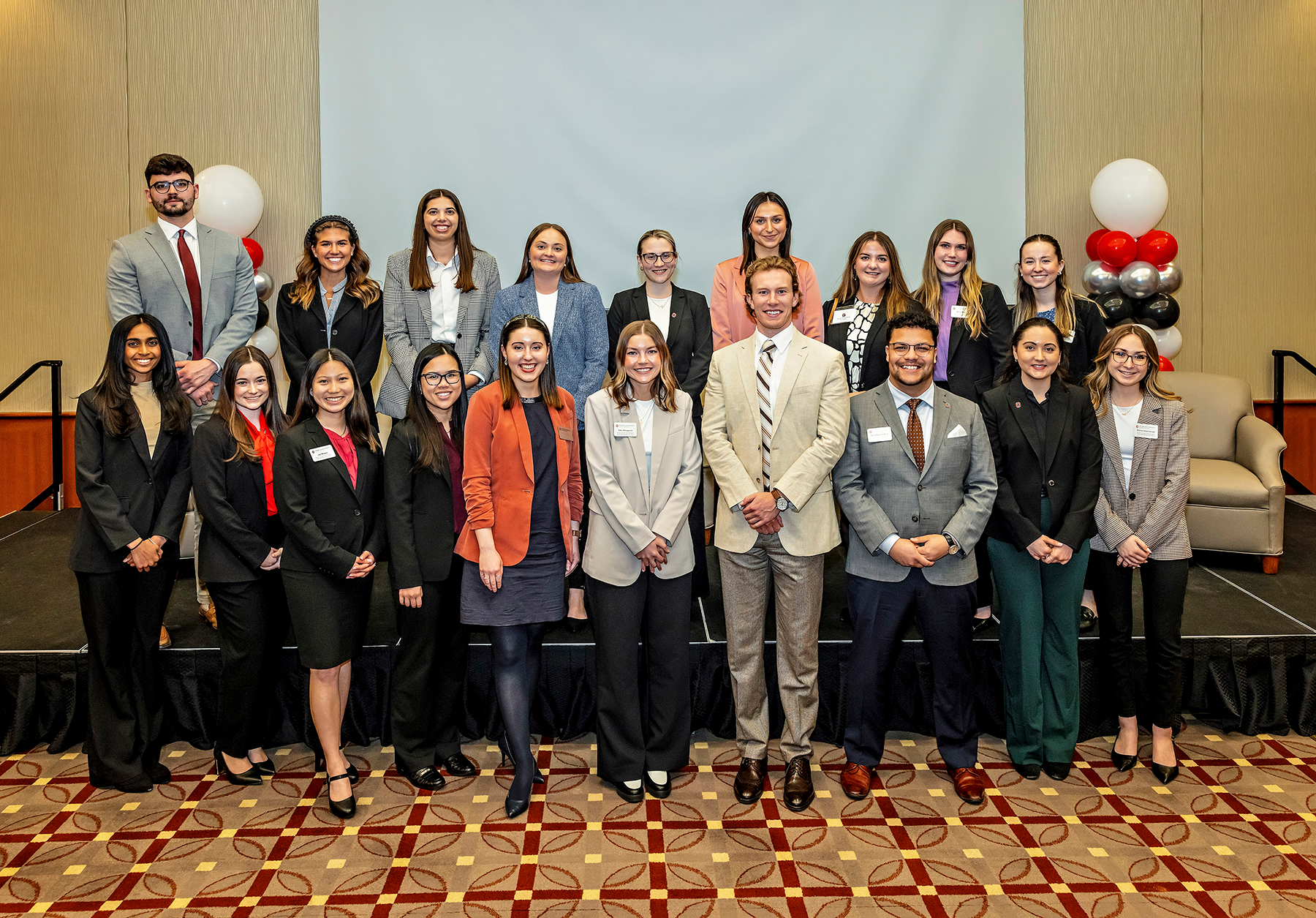Ohio State first-year case competition a ‘national gem’
Annual event a learning opportunity for MHA students
By Kristen Mitchell

Students in the College of Public Health’s Master of Health Administration program spend spring semester staring down a daunting task: Pulling off the nation’s first entirely student-run case competition, and the only one geared exclusively toward first-year students.
Case competitions challenge students to apply their creativity, knowledge and experience to analyze a specific health care administration problem and present their findings before expert judges. And they serve as an early opportunity for students to strengthen the project management, presentation and analytical skills they’ll need to succeed in their careers.
The learning that happens behind the scenes at the Ohio State University First-Year Health Administration Case Competition sets it apart. While a team of first-year MHA students get their first opportunity to test their skills alongside peers from other universities, second-year MHA students take the lead on planning and event execution.
MHA Program Director Kelly Scheiderer said this combination makes the event a one-of-a-kind opportunity for Ohio State’s students.
“Each year the students build upon the previous class success and have made this event into a national gem,” Scheiderer said. “I am proud of our students who so well represent our program, The Ohio State University and the health care profession.”
Joy Mason ‘24 MHA, chair of the 2024 case competition, called the year she spent planning the event a “big lesson in project management.” While Mason had planned events in the past, the large scale and scope of the case competition presented a new challenge. The planning team had to work together to develop their goals and work backward to determine how to best meet them.
“Our team worked hard to make sure we thought of as much as possible, to make sure the participant and guest experience was as good as it could be,” she said. “Not many students have the opportunity to take on a role like this in graduate school, it’s been great professional development.”

Dan Gentry, president and CEO of the Association of University Programs in Health Administration (AUPHA) attended this year’s event. Case studies, analyses and competitions represent “a very high level among approaches to learning,” he said.
“I have been attending the OSU Case Competition since the very beginning, first accompanying my own graduate students and more recently representing AUPHA,” Gentry said. “This is a great contribution to our field by (Ohio State’s) MHA program.”
For the students who competed in April, the work began weeks before they showed up on campus. The 24 teams of first-year students received the case on March 1, which focused on Medicare Advantage implementation in West Virginia. Students had three weeks to analyze every angle and craft their recommendations — which for first-year MHA student Hannah Nawrocki and her teammates Kanna Miskin and Liz LaPlante meant a lot of long days in Cunz Hall.
The Ohio State team received helpful feedback from their advisor, Hanna Gottschalk ‘20 MHA, who took part in the competition as a student, as well as from local physicians and health care leaders.
“It’s important that the students come up with the ideas on their own, but (we) ask them questions that make them think about it further and to challenge their ideas — not so that they change their minds, but so that they’re able to really develop good responses...and demonstrate their expertise of the subject matter,” Gottschalk said.
Once the team finalized their recommendation, they spent a week practicing their presentation in front of classmates. To minimize judging bias, students who traveled to the competition didn’t reveal which schools they were from when they mingled at the Leadership Development Symposium, also organized by MHA students, the night before the event.
A month of hard work culminated in a 15-minute case presentation the next day, a stressful but gratifying experience, Nawrocki said. She enjoyed getting the chance to hear other students present their cases.
“There are so many different ways to approach problems and to think about things,” she said. “It was so interesting how everybody can think of something in a completely different way, but they all make sense.”
While Ohio State’s team did not advance to the final round, Nawrocki said she’s proud of all the work they did. She hopes to compete more broadly next academic year.
“This is a terrific learning opportunity. My ability to present has significantly improved,” she said. “The more exposure I can get to these real-world problems, the better.”